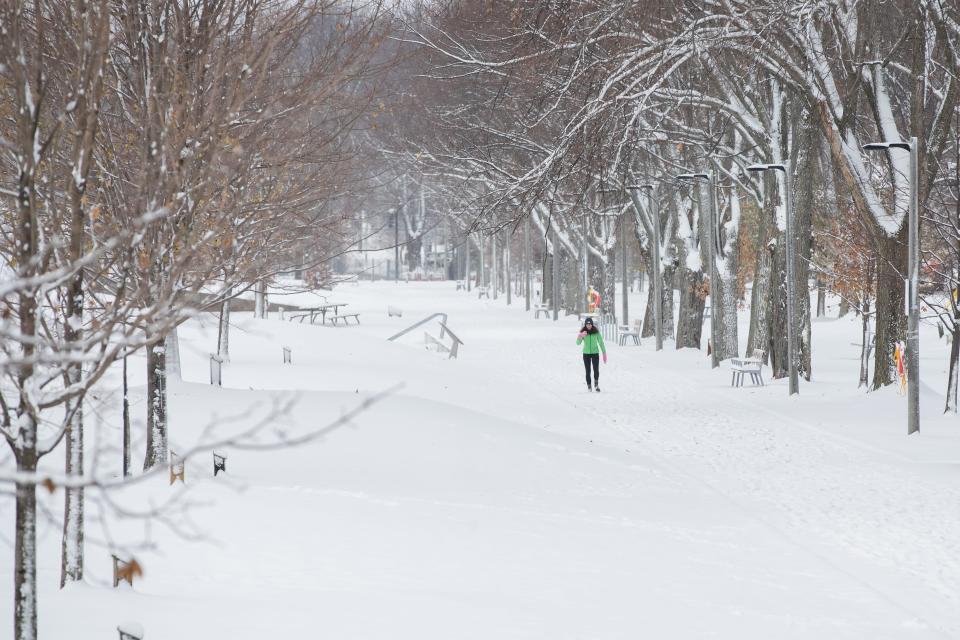Forecast highlights: Best and worst winter weather in Canada
Since the snow has started to fall across Canada, we’re looking at what’s in store for the rest of the season. According to weather experts, this winter is shaping up to be the battle of opposites from East to West.
Both AccuWeather and The Weather Network are predicting mild temperatures in the far West and freezing cold in the far East, but the Old Farmer’s Almanac is on a bit of a different page.
The historic weather guide is expecting colder-than-normal winter temperatures for most of Canada and an above-normal level of snowfall for the whole country. The Old Farmer’s Almanac anticipates the snow across most of Canada will last until March.
Atlantic Canada
Atlantic Canada is expected to have the worst winter weather, with below-normal temperatures and above-normal snow accumulation throughout the region.
Fredericton, Moncton and Halifax are cities to watch this season for both freezing temperatures and the heaps of snow, according to The Weather Network.
“Could it be one of their most snowiest winters on record, that’s something you can watch out for with a very active storm track into that region,” Brad Rousseau, meteorologist with The Weather Network told Yahoo News Canada.
According to the Old Farmer’s Almanac, the Maritimes will see significant precipitation throughout the season. But the long-range prediction also shows more mild temperatures for the month of February, quite a departure from The Weather Network and AccuWeather’s forecasts, followed by below-normal temperatures creeping up in March.

Ontario and Quebec
The cold weather will still be around farther west, in Ontario and Quebec, but AccuWeather and The Weather Network are expecting particularly chilly temperatures to show up later in the season.
Both weather agencies are predicting the Arctic blast will likely happen in eastern Ontario and Quebec around February.
“Lake-effect snowfall, downwind of the lakes, is expected to be below average this season due to a lack of Arctic air,“ Brett Anderson, senior meteorologist with AccuWeather said in a statement. “February may actually have the greatest lake-effect due to a higher probability of cold spells.”
The Old Farmer’s Almanac thinks more mild temperatures will hit southern Ontario in February, with above-normal precipitation in that month.

Prairies
If you live in the Prairies, stay alert because the area will be the most volatile part of the country this winter. Much of the region will be battling between the cold air in the East and the mild air in the West.
Alberta and western Saskatchewan will tip to the above-normal side but eastern Saskatchewan into Manitoba we be cooler.
“We say near-normal but we actually expect the winter to have very dramatic swings,” Rousseau said. “We expect periods where temperatures will be well above seasonal for this region and we also expect periods where temperatures will be well below seasonal.”
According to the Old Farmer’s Almanac, the Prairies will see a longer winter than the rest of the country, extending into April.

British Columbia
British Columbia is expected have the most quiet weather pattern for the season, with just below-normal precipitation expected and above-normal temperatures. Even the Old Farmer’s almanac expects more normal temperatures in western B.C.
“We’ll have to watch to see, if they trend drier than normal, is that going to have an impact as you go through the fall and summer,” Rousseau said. “If that drier trend doesn’t break, are they going to have another fire season like the one they just had.”
The Weather Network says the alpine regions will get lots of snow for short periods of time, so ski resorts shouldn’t be impacted. But AccuWeather does think the ski season may be cut short.
“A majority of the snowfall in the western mountains and ski areas will come early in the season, before drier weather takes hold,” Anderson said.


